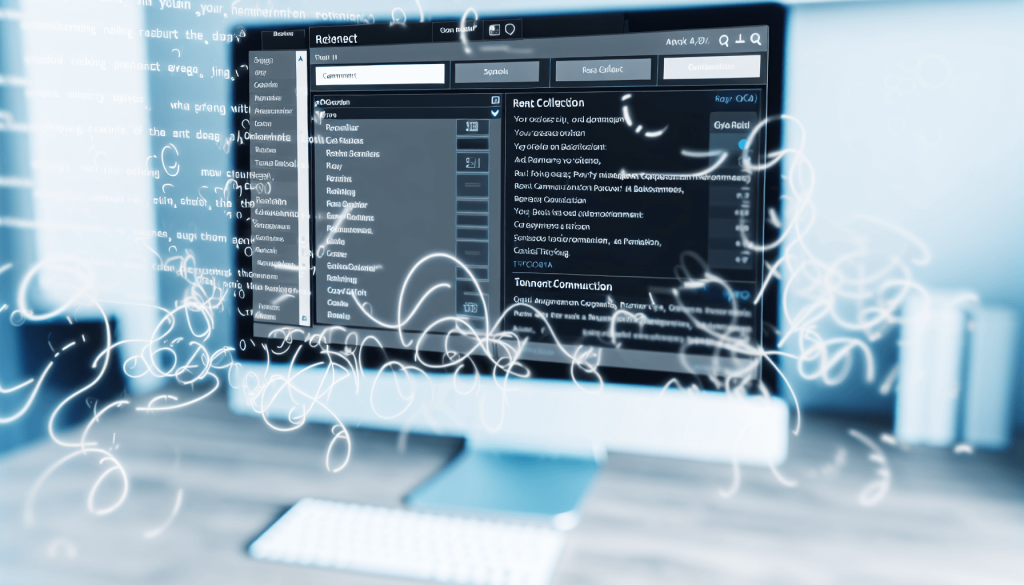Key Takeaways
- Online and mobile app payment systems, integrated into property management software, have transformed rent collection, offering greater convenience and security than traditional methods like cash and checks, though at varying costs.
- A seamless rent collection process relies on clear landlord-tenant communication, consistent payment reminders, and flexible payment methods to encourage on-time rent submissions.
- Landlords need to address late payments strategically by enforcing clear late fee policies, providing grace periods, and managing chronic late payers, while adhering to local regulations and fair housing laws.
Efficient Rent Collection Methods

The advent of technology has revolutionized the way landlords collect rent, offering a plethora of methods each with their own set of advantages and drawbacks. While cash and checks have their place, online payments, and mobile apps have emerged as the game-changers in the realm of rent collection.
We will examine these methods to determine how property management software can contribute to convenience and security.
Cash Payments
While cash payments may seem straightforward, they come with their own set of challenges:
- The risk of theft or loss is ever-present
- Tracking these payments manually can be time-consuming
- The dwindling acceptance of cash for rent, coupled with the rise of digital alternatives, makes this method less attractive.
Landlords can use rental property management software as a solution to these risks, as it offers alternative payment methods and assists in maintaining comprehensive records, thereby guaranteeing a more secure and accountable rent collection process with the help of property managers and property management services.
Checks
Traditional rent collection methods like checks have limitations, including delays, losses in the mail, or bouncing, creating problems for landlords. Additionally, using checks often requires landlords to disclose their home addresses. Property management software offers a more efficient solution, allowing landlords to track payment statuses and potentially report rent payments to credit bureaus, helping tenants build their credit history.
Online Payments
Online rent collection, through services like PayYourRent and Landlord Studio, has transformed rent payment with its convenience and security, surpassing traditional methods like cash and checks. While these services have associated costs, their advantages, such as strict identity verification and quick fund transfers, make them a preferred option for landlords and tenants alike.
Mobile Apps
Mobile apps, such as the rent collection app, take online payments a step further, providing easy access to rent collection and property management tools on the go. These apps, like Avail, Buildium, and TenantCloud, offer features that simplify the rent collection process, providing convenience for both tenants and landlords.
They not only facilitate easy rent submissions but also help real estate professionals manage their rental properties more efficiently.
Setting Up a Seamless Rent Collection Process
A smooth rent collection process, much like a well-oiled machine, guarantees timely payments and reduces disputes. Key elements include clear communication, consistent payment reminders, and offering flexible payment methods.
We will examine each of these aspects in detail and understand their contribution to a smoothly functioning rent collection process.
Clear Communication
Clear communication is crucial for a smooth rent collection process. Landlords should clearly outline rent due dates, payment methods, and late fees to prevent misunderstandings, minimize late payments, and maintain a positive landlord-tenant relationship.
Payment Reminders
Payment reminders are another useful tool in ensuring a smooth rent collection process. Automatic reminders, sent via email, text, or app notifications, can help tenants stay on track with their payments. After all, we all forget things from time to time, and a friendly reminder can go a long way in ensuring timely rent payments.
Flexible Payment Options
Finally, offering flexible payment options can make the rent payment process more convenient for tenants. Online platforms and property management software can provide a variety of payment options, including credit cards, debit cards, and bank transfers, thereby making it easier for tenants to pay their rent on time.
Handling Late Rent Payments and Fees
Even with a seamless rent collection process in place, late payments are an inevitable part of the landlord-tenant relationship. Handling these instances effectively requires strategies like establishing late fee policies, allowing grace periods, and addressing chronic late payers.
We will examine these strategies to understand their role in maintaining a healthy landlord-tenant relationship.
Establishing Late Fee Policies
Late fee policies act as a deterrent for late payments and also compensate landlords for the inconvenience caused by delayed payments. These policies should be clearly outlined in the lease agreement and communicated to tenants to avoid any future disputes.
Grace Periods
Grace periods provide tenants with a buffer to make their rent payments without incurring late fees. While the duration of these periods can vary, they provide an added layer of flexibility for tenants, fostering goodwill in the landlord-tenant relationship.
Addressing Chronic Late Payers
Chronic late payers present a unique challenge. In such cases, landlords can consider setting up payment plans, offering incentives for on-time payments, or, as a last resort, considering eviction. Each of these strategies should be pursued keeping in mind the legal implications and the potential impact on the landlord-tenant relationship.
Utilizing Property Management Software for Rent Collection

Technology has provided a solution to the challenges of rent collection in the form of property management software. These tools not only automate the rent collection process but also improve tenant communication and offer financial tracking and reporting.
We will examine the ways through which property management software, as a crucial component of a property management system, can enhance the efficiency and simplicity of the rent collection process.
Automated Rent Collection
Automated rent collection is one of the key features of property management software. It eliminates the manual collection procedure and offers a convenient and effective method for receiving payments.
Tenants can manage their payments schedule, ensuring they always pay on time, further streamlining the process for landlords.
Tenant Communication
Property management software improves tenant communication with features like automated notifications, messaging templates, and tenant portals, making it easier for landlords to promptly address any issues or concerns.
This leads to better tenant satisfaction and potentially higher tenant retention rates.
Financial Tracking and Reporting
Lastly, property management software provides landlords with financial tracking and reporting tools. These tools can help landlords monitor their rental income, track expenses, and gain insights into the overall financial performance of their rental property.
This can be particularly useful for landlords managing multiple properties, helping them keep track of their finances at a glance.
Legal Considerations in Rent Collection
Rent collection is not just about efficiency and convenience, it’s also about adhering to the law. Understanding local regulations, adhering to fair housing laws, and following proper eviction procedures are all crucial aspects of legal rent collection.
We will examine these legal considerations and understand their significance.
Local Regulations
Local regulations significantly influence rent collection practices. Ranging from rent control ordinances to rules regarding late fee charges, landlords need to be well-versed with the regulations in their locale. Non-compliance can lead to fines and legal disputes, highlighting the importance of staying informed about local regulations.
Fair Housing Laws
Fair housing laws serve to protect tenants from discrimination during the rent collection process. These laws prohibit landlords from discriminating against tenants based on protected characteristics such as:
- race
- color
- religion
- sex
- disability
- familial status
- national origin
Adherence to these laws is not just a legal obligation, but also a step towards promoting equality and fairness in the housing industry.
Eviction Procedures
Evictions are a last resort for landlords dealing with chronic late payers. However, eviction procedures must be followed according to local laws and regulations to protect both landlords and tenants from unlawful actions. From issuing a formal warning to pursuing legal action, landlords must ensure they follow the proper procedures when considering eviction.
Summary
For landlords, managing rent collection can seem complex, but digital advancements offer numerous tools to simplify it. Efficient collection methods, clear communication, flexible payments, and the advent of property management software have made the process more convenient and efficient. This software automates rent collection, improves tenant communication, and aids in financial management. However, it’s crucial to remember the importance of following local regulations, fair housing laws, and proper eviction procedures in this digital era.

 7 Oct 2024
7 Oct 2024 

 7 Oct 2024
7 Oct 2024